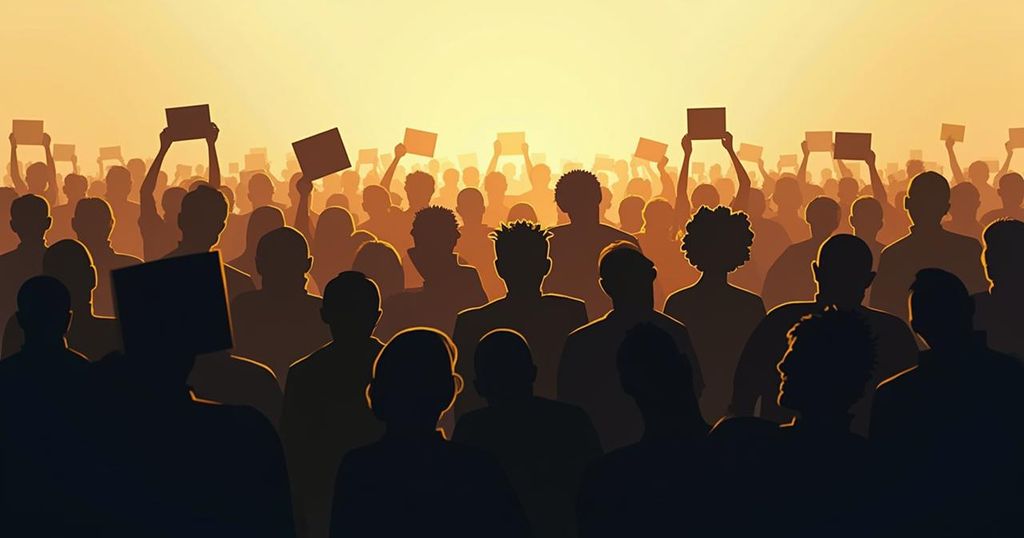Brazilians have begun voting in local elections for mayors, deputy mayors, and councilors, with significant attention on São Paulo’s heated mayoral race featuring Ricardo Nunes, Guilherme Boulos, and Pablo Marçal. Instances of violence and controversy have marred the election process, while dramatic shifts in voter demographics, including a rise in transgender candidates, illustrate evolving social dynamics. Polls opened at 8 a.m. and will close at 5 p.m., with runoff elections scheduled for later this month if required.
Brazilians have officially commenced voting in the initial round of local elections, which includes positions for mayors, deputy mayors, and councilors across the country’s 5,569 municipalities. The focus is particularly intense in São Paulo, where three mayoral candidates are competing closely: the current mayor Ricardo Nunes, leftist legislator Guilherme Boulos, and political outsider Pablo Marçal, who has a background in self-help and a far-right following. A runoff election is scheduled for October 27 if no candidate secures an absolute majority. The political climate in São Paulo has been increasingly volatile, highlighted by incidents of aggression during electoral debates. Notably, José Luiz Datena, a former television presenter and current candidate, struck Marçal with a metal chair amidst allegations against Marçal during one debate. In addition, a violent encounter occurred when an aide to Marçal physically attacked another candidate’s associate, resulting in significant injury. Controversy surrounding Marçal intensified as he shared a fabricated medical report on social media that falsely accused Boulos of cocaine use. This report was debunked by local news outlets, which pointed out glaring inconsistencies, including the involvement of a deceased physician’s signature. Following this incident, a judge within São Paulo’s electoral court imposed a temporary suspension on Marçal’s Instagram account, citing potential violations of electoral regulations. Marçal has garnered a following largely from supporters of former President Jair Bolsonaro, despite Bolsonaro’s endorsement of Nunes. In Rio de Janeiro, the current mayor Eduardo Paes seeks to avoid a runoff election. Recent polling indicates a tightening race with challenger Alexandre Ramagem, who has seen a shift in public support amid investigations into alleged misconduct while he led the country’s intelligence agency. Ramagem has denied any wrongdoing, and his support has been bolstered by Bolsonaro’s campaigning efforts. A significant voting demographic includes over 155 million eligible voters, with approximately 43% situated in the southeastern regions of São Paulo and Rio de Janeiro. Women constitute about 52% of the electorate. Notably, there has been a marked increase in the number of transgender candidates for local office, with around 1,000 individuals running across Brazil’s 26 states, demonstrating a significant rise since the last local elections four years ago. The polls opened at 8 a.m. Brazil time and will close at 5 p.m. (2000 GMT), with a subsequent round of elections planned for municipalities with more than 200,000 registered voters if no candidate achieves the required majority.
The local elections in Brazil have attracted widespread attention for their potential implications on national politics. This election cycle is particularly notable due to rising tensions and instances of violence among candidates, which reflect a polarized political landscape. The ongoing support for far-right figures, as represented by candidates such as Pablo Marçal, presents a shift in Brazil’s traditional political dynamics influenced by the remnants of Jair Bolsonaro’s presidency. Additionally, the rise of transgender candidates marks a significant change in Brazil’s political representation, reflecting broader societal transformations concerning inclusivity and rights.
The local elections in Brazil, particularly in major cities such as São Paulo and Rio de Janeiro, reveal a deeply fragmented political atmosphere characterized by tensions, allegations of misconduct, and increasing representation of marginalized groups. While established politicians face challenges from up-and-coming candidates, the incorporation of transgender politicians into the electoral process signifies a critical shift towards greater diversity in Brazilian politics. The outcome of these elections will not only affect local governance but may also resonate on a broader national scale, influencing future electoral strategies and ideologies.
Original Source: apnews.com







